Timor Sharan is originally from Afghanistan and has been in exile since the fall of the Islamic Republic of Afghanistan in 2021. In Afghanistan, he founded and led the Afghanistan Policy Lab, the first policy hub focused on experimental research, policy modelling, and behavioural insights. Prior to that, he served as Deputy Director-General for Policy and Programmes at the Independent Directorate of Local Governance under the previous government. Earlier in his career, Timor was Senior Policy Analyst for Afghanistan at the International Crisis Group and an Adjunct Professor at the American University of Afghanistan. He has also advised governments and international organisations, including USAID, Open Society Foundations, and Friedrich-Ebert-Stiftung.
About Hamrah
The HAMRAH Initiative was launched in early 2024 to strengthen Afghan civil society, particularly women-led organisations, which were forced into exile after the Taliban takeover of 2021. With financial and technical support, shared learning, and by facilitating joint advocacy, HAMRAH supports its cohort members to build resilience, adapt to living and working in their host countries, and to effect change in Afghanistan and internationally. HAMRAH is hosted by Global Dialogue and supported by the Open Society Foundations.
HAMRAH’s vision is of a strong Afghan civil society equipped with the necessary organisational infrastructure, leadership, skills, and collaborative networks to help safeguard the rights of women and girls, LGBTIQ+ persons, people with disabilities and other marginalised groups in Afghanistan.
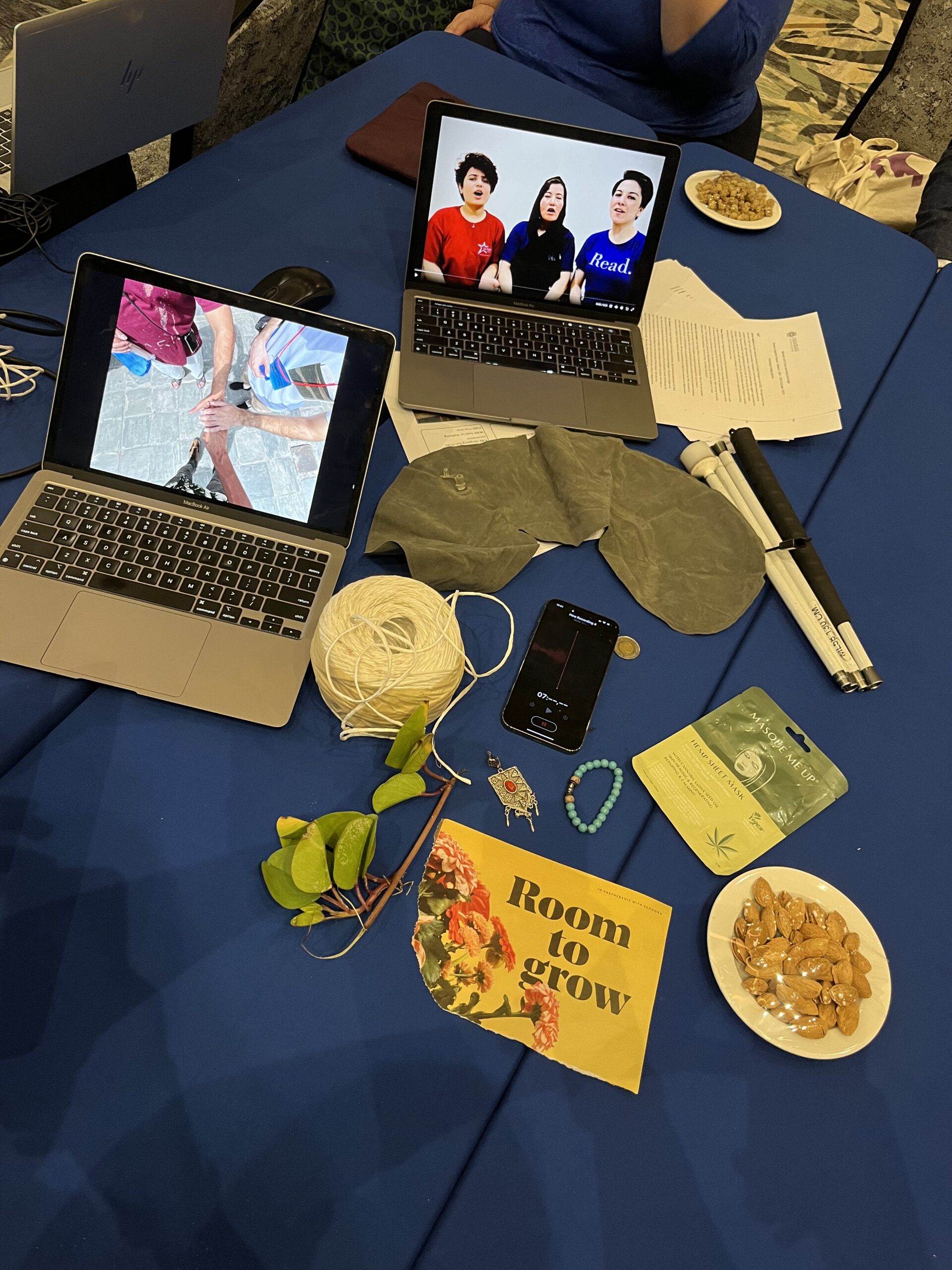
Financial Support
We provide small grants to our cohort members to help them ensure operational stability, support the development of projects, and increase their impact, with a view to enabling each organisation to chart its own course.
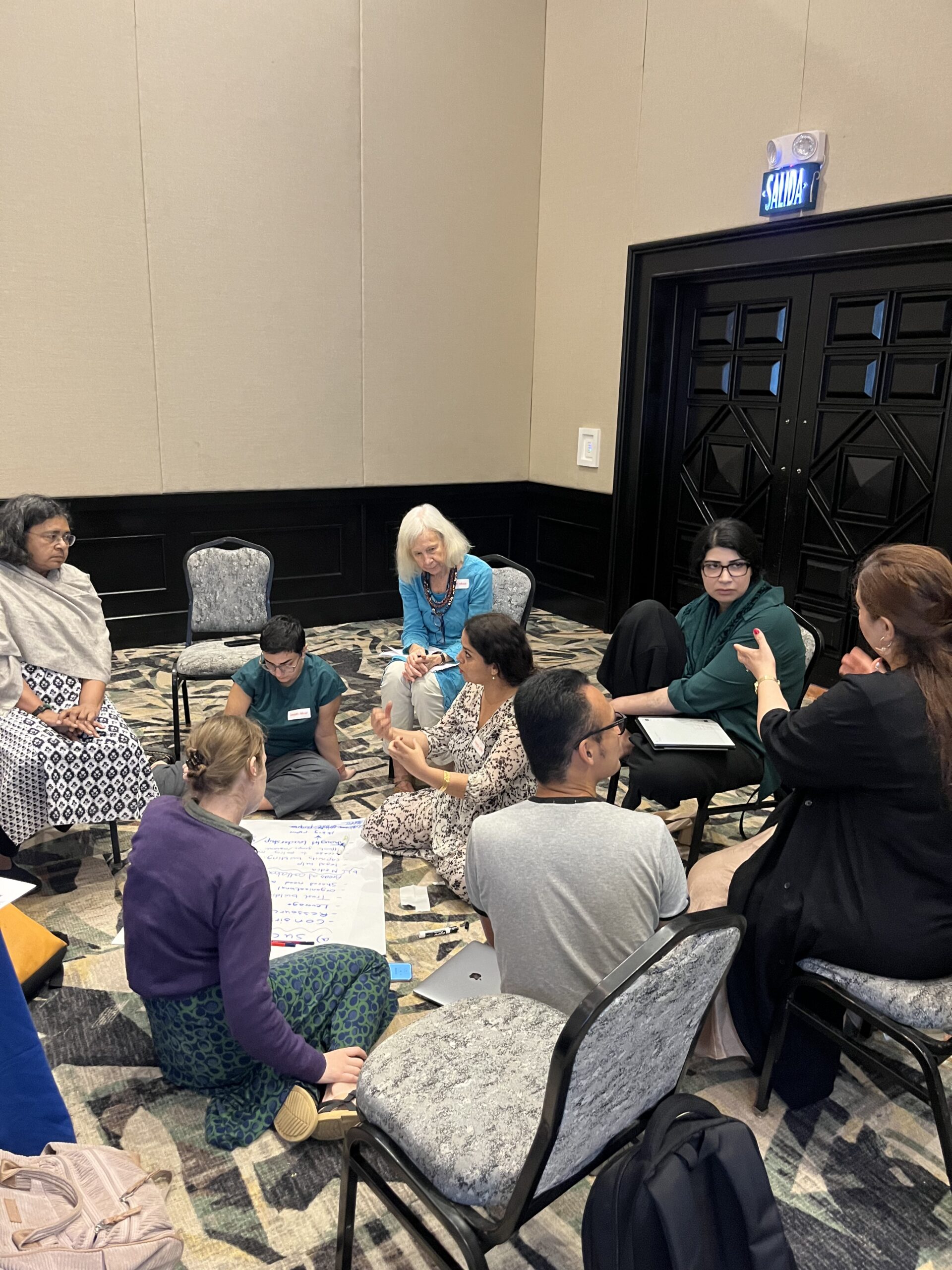
Organisational Capacity Building
HAMRAH offers a range of technical support and mentoring tailored to each cohort member’s specific needs. This includes legal assistance, operational and administrative support, and specialized trainings – from communications to donor compliance and due diligence – ensuring each organisation becomes stronger and more impactful.
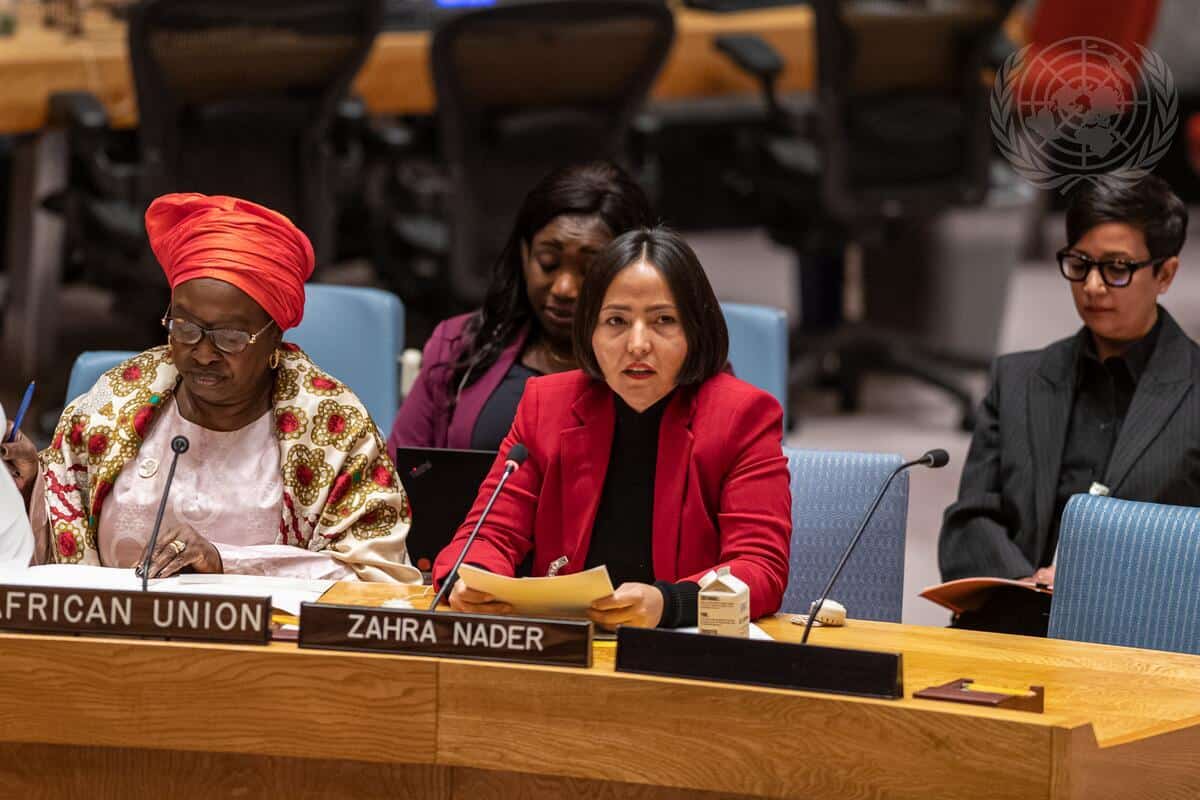
Joint Advocacy and Networking
HAMRAH supports cohort members to develop and implement their advocacy strategies and provides a platform for their collective voices. HAMRAH’s advocacy is informed by insights and analysis from our cohort members gained through their work with women and girls, people with disabilities, LGBTIQ+ persons and other marginalised groups. We seek to amplify their voices and to focus the attention of international policy makers and practitioners on addressing the needs of the communities that our cohort members are working with.
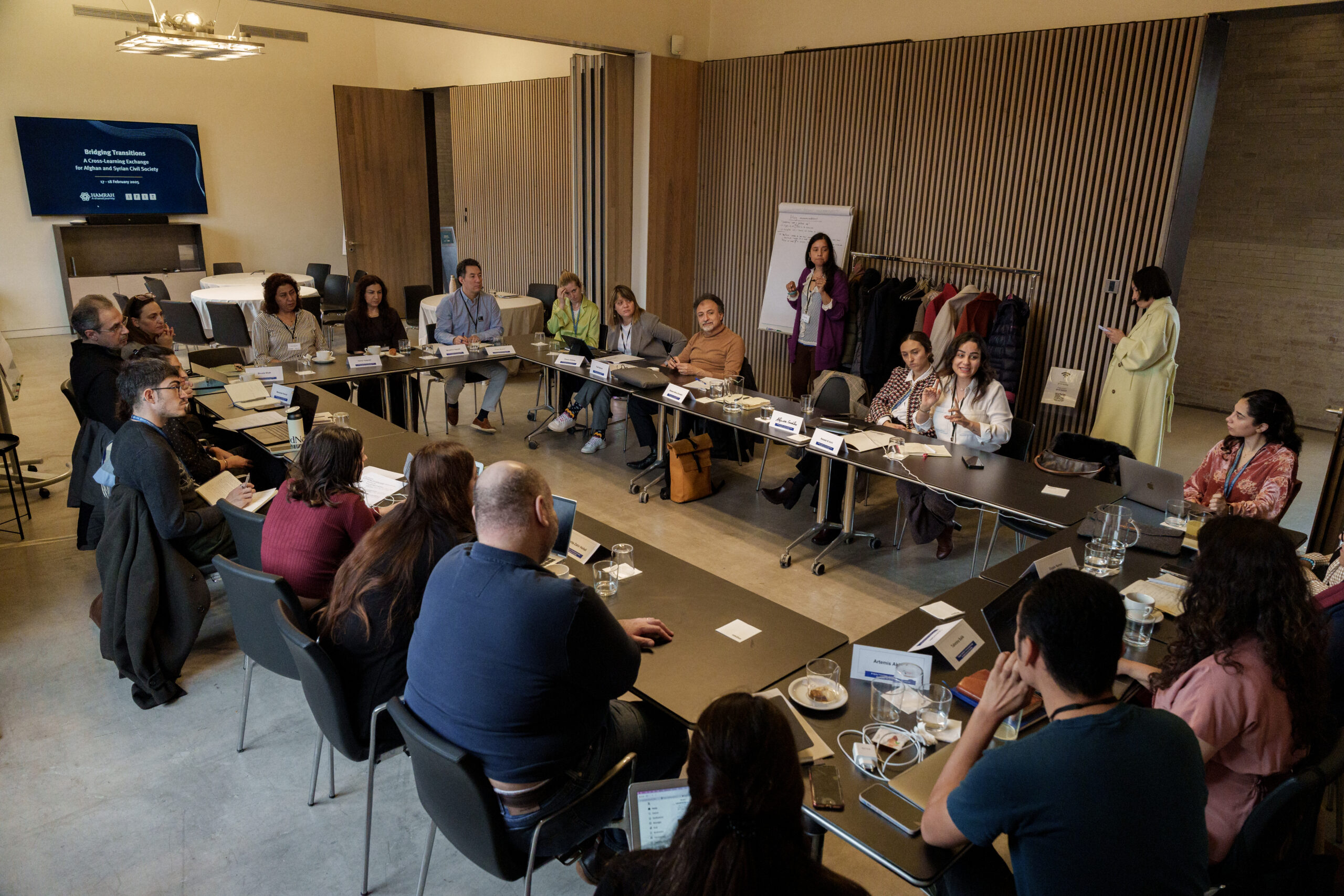
Cross Learning and Knowledge Sharing
We create opportunities for shared learning and for building solidarity. By facilitating events to connect Afghan CSOs with peers from the Global South, our exchanges foster alliance-building, sharing of strategies and tactics, collective action for social change, and mutual support and inspiration.
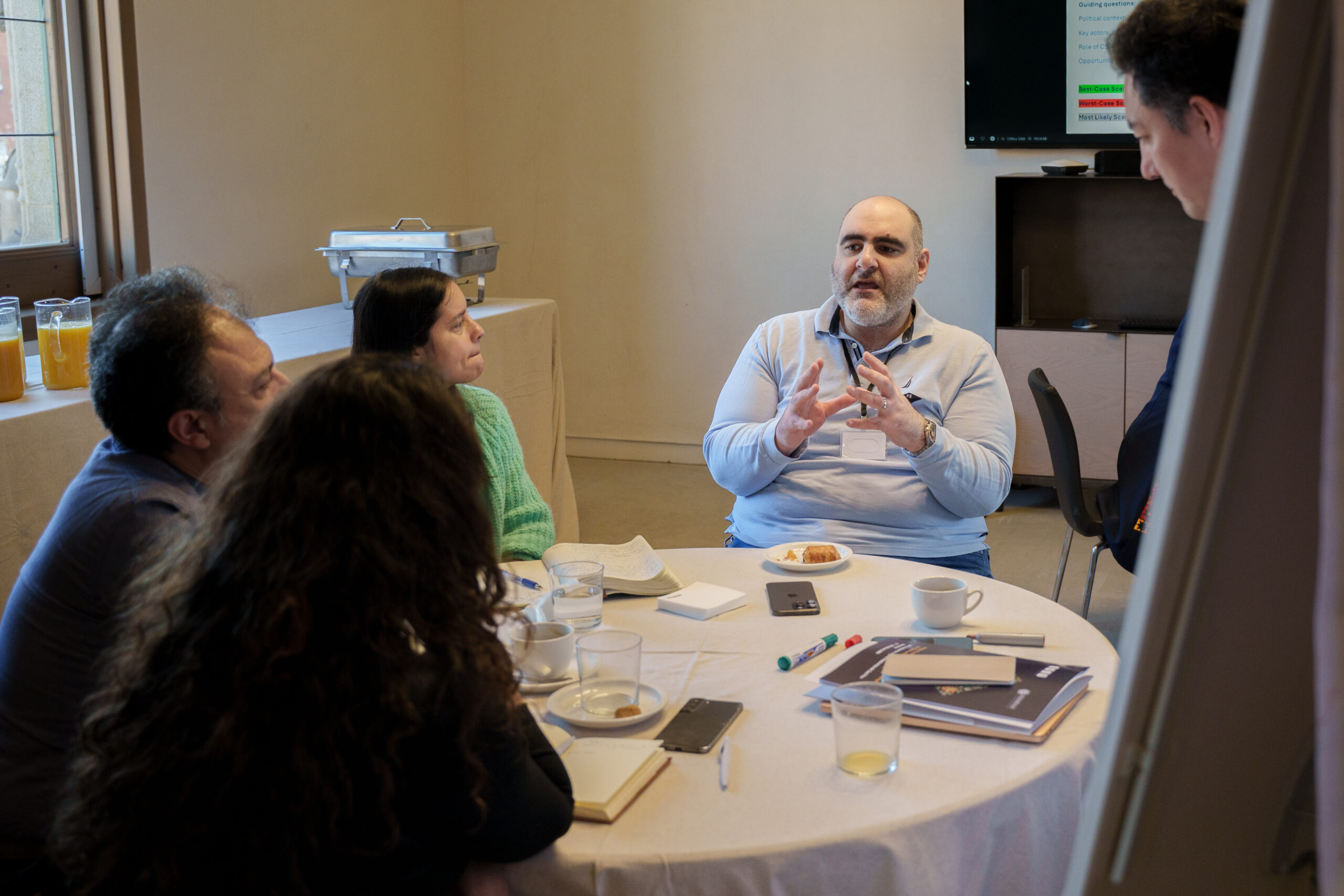
Mentorship and Guidance
Each cohort member is connected with a volunteer mentor who provides tailored professional expertise and socio-cultural support. These mentors draw on their own experience and networks to support cohort members to survive and thrive in their host country
Latest from HAMRAH
While global sympathy for Afghans—especially women and girls—remains, attention on Afghanistan has waned amidst new conflicts and global crises. To bring the spotlight back and push for meaningful policy shifts, our cohort is stepping up, speaking out, and ensuring the world does not look away.
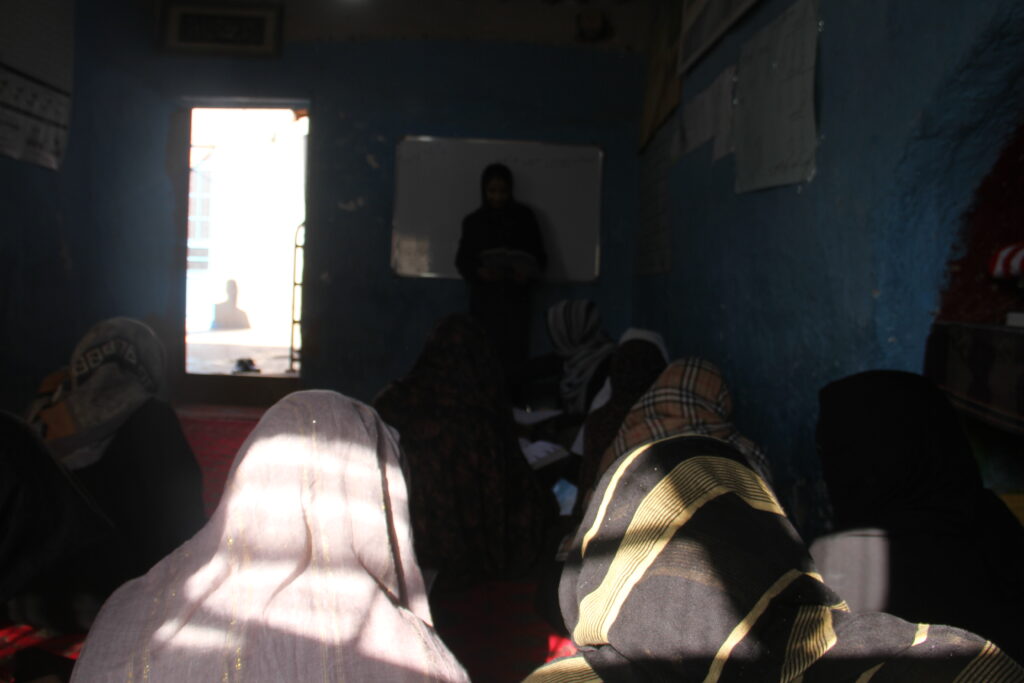
HAMRAH Launches First Joint Policy Note on Justice and Protection for Afghan Women and Girls

Bridging Transitions: Afghan and Syrian Civil Society Dialogue

HAMRAH Retreat in Mexico Strengthens Partnership, Trust, and Fosters Learning Exchange with South American CSOs
Staffing
Advisory Board
Sawsan Abou Zainedin is the Chief Executive Officer of Madaniya, a Syrian-led, Syrian-funded initiative focused on enhancing the political agency of Syria’s civic space. Previously, Sawsan consulted for leading international organisations including the UN Economic and Social Commission (UNESCWA), the German Society for International Cooperation (GIZ), the European Institute of Peace, Arab Reform Initiative, and PAX. Sawsan has published and lectured extensively on topics relating to the Syrian conflict. She is also a member of GIZ’s Experts Network on Housing, Land, and Property Rights in Syria and the Institute for Integrated Transitions’ (IFIT) Syria Resource Group.
Dianna Melrose is a former British High Commissioner to Tanzania and Ambassador to Cuba, with wide experience in international development. As Oxfam GB’s first Policy Director, she was instrumental in building Oxfam’s international advocacy work. In 1993 she visited Afghanistan to interview Afghan women displaced by conflict, for an Oxfam fundraising campaign. At the UK’s Department for International Development, she led the International Trade team and developed the Extractive Industries Transparency Initiative, fostering greater transparency in natural resource management. Dianna was head of the UK’s Foreign & Commonwealth Office’s Policy Planning department. She served as a trustee of the global affairs think tank ODI (2016-23) and Save the Children UK (2017-25).
Aunohita Mojumdar is a writer, journalist, and editor. She has been a correspondent for prominent Indian media outlets such as the Times of India and the Statesman. She lived and worked in Kabul from late 2003 to early 2012 reporting on different aspects of the transition through a critical lens, contributing to a wide variety of regional and international media. She is the former editor of Himal Southasian. Currently based in Bengaluru, Karnataka, Aunohita has extensive experience of reporting on human rights and other critical issues. She has worked in many countries, including Afghanistan, India, Nepal and Sri Lanka, with daily news organisations, magazines, and as a book editor.
Sussan Tahmasebi is the Executive Director and co-founder of Femena, an organisation that promotes women’s rights and supports women human rights defenders, their organisations and feminist movements in the Southwest Asian and North African (SWANA) region. From 1999-2011, Sussan was based in Iran, promoting women’s rights and building the capacity of civil society. She regularly speaks in leading news outlets about developments in Iran and the region and has authored or co-authored numerous articles on women’s rights and women’s movements. She is a member of the Advisory Committee for Human Rights Watch’s Middle East and North Africa Division, a non-resident fellow at Democracy for the Arab World Now (DAWN), and a board member of the Doria Feminist Fund.
Sandra ‘Sandy’ Feinzig is a lawyer with over thirty years of domestic legal experience and more than eighteen years of experience in international law and development. Her international work spans Afghanistan, Bangladesh, Cambodia, Thailand, India, Jordan, Tunisia, Lebanon, China (PRC), and Sudan.
Sandy has worked with national legal aid organizations and UNICEF in Cambodia, and with UNDP on rule of law initiatives in transitional regions of Sudan. She has completed over ten assignments in Afghanistan, including serving as a legal advisor on criminal justice reform projects (JSSP), as a consultant with UNIFEM (2009), and as a gender justice advisor—later becoming Chief of Party—on Dutch and French-funded projects with the International Development Law Organization (IDLO). Prior to rejoining The Asia Foundation in May 2019 as a Senior Advisor, Sandy served for approximately one year as the Foundation’s Deputy Country Representative.
Sandy earned her Juris Doctor from Florida State University College of Law in 1983, followed by a Master of Laws (LL.M.) in Public International Law from Cambridge University in 1986. She also holds a Master’s in Public Administration from Florida State University.
We are Global Dialogue - an international philanthropy support organisation. We partner with independent funders to advance rights, equity and diversity.
Independent in status and global in reach, we provide funder networks, collaboratives and partners with practical support and technical expertise to create lasting change
